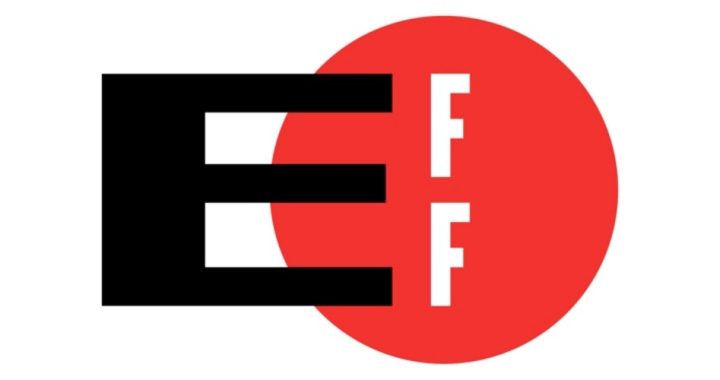
The Electronic Frontier Foundation (EFF) will argue in court today that the warrant used by the FBI in the now infamous “Playpen” child pornography case was unconstitutional. EFF — an organization dedicated to preserving digital liberty — is concerned about the precedent this case will set if the warrant is allowed to stand.
As The New American reported in a previous article, the case stems from a two-week period in 2015 when the FBI operated a child pornography website and used the traffic to that website to inject malware to the computers of visitors to the site:
The case goes back to 2015 when the FBI operated a child pornography website for two weeks. Yes, you read that right. From February 20 to March 4, 2015, the FBI ran a website with more than 23,000 actual pictures and videos of children being sexually abused, including more than 9,000 of which could be downloaded by visitors to the site. According to court records, some of those children were almost too young to be in kindergarten.
It began when the FBI discovered the location of the server for the so-called Playpen website, which was accessible only via the Tor network. The FBI raided the location, arrested the operator, and made the decision to leave the website up and running and allow visitors to the site to continue downloading images and videos. The FBI’s reasoning (if it can rightly be called that) was that federal agents had the ability to inject malware into the server that would work its way back to the users’ computers, defeating Tor’s anonymity all along the way. The FBI tracked the site’s visitors and later made more than 135 arrests including “a pediatrician, a math teacher, a professor, a public school administrator, a preschool teacher, a former bank executive and a federal drug enforcement agent,” according to a report from deepdotweb.com. Somehow, in the darkened mind of the FBI, the arrests justified spending two weeks peddling child pornography. And this is at least the third time the FBI has done this type of thing.
But then, this is the same FBI that helped the NSA give us Fast and Furious.
In the two years since the FBI made the arrests in the “Playpen” case, those cases have been making their way through the courts. There have been a variety of legal challenges, but now EFF will argue before the U.S. Court of Appeals for the First Circuit in Boston, Massachusetts, today that the FBI’s decision to use “a single, general warrant to authorize its massive hacking operation” amounts to “violating the Fourth Amendment,” according to a press release by the Internet privacy group.
Of course, it is easy to misinterpret the actions of groups such as EFF in a case such as this one. But lest it appear that EFF is defending child pornographers, that is not the only (or even the main) issue here. There are two important facts to consider in this case:
1. The FBI had a plethora of investigative tools at its disposal and other avenues for pursuing this investigation.
2. By seeking “a single, general warrant to authorize its massive hacking operation” involving thousands of computers around the world, the FBI was testing a novel approach to expanding its power in lieu of abiding by the clear meaning of the text of the Fourth Amendment.
As EFF Media Relations Director and Digital Rights Analyst Rebecca Jeschke wrote in the press release:
During the investigation, the FBI secretly seized the servers running the Playpen site and continued to operate them for two weeks. The bureau allowed thousands of images to be downloaded while distributing malware to website visitors. With that malware, the FBI hacked into over 8,000 devices in hundreds of countries across the globe — all on the basis of a single warrant.
However, because the government was running the Playpen site, it was already in possession of information about visitors and their computers. Rather than taking the necessary steps to obtain narrow search warrants, the FBI instead sought a single, general warrant to authorize its massive hacking operation, violating the Fourth Amendment. In Wednesday’s hearing, EFF Senior Staff Attorney Mark Rumold will argue as amicus, urging the court to send a clear message that a vague search warrant is not enough to satisfy the privacy protections enshrined in the Constitution.
If the novel approach the FBI used in this case is allowed to stand, the privacy and liberty of all Americans will recede exponentially. As Jeschke aptly explained: “The precedent set by the Playpen prosecutions is likely to impact the digital privacy rights of Internet users for years to come.”
As EFF’s Karen Gullo wrote back in February:
The Constitution requires law enforcement officers seeking a search warrant to show specific evidence of a possible crime, and tie that evidence to specific persons and places they want to search. These fundamental rules protect people from invasions of privacy and police fishing expeditions.
But the government violated those rules while investigating “Playpen,” a child pornography website operating as a Tor hidden service. During the investigation, the FBI secretly seized servers running the website and, in a controversial decision, continued to operate it for two weeks rather than shut it down, allowing thousands of images to be downloaded. While running the site, the bureau began to hack its visitors, sending malware that it called a “Network Investigative Technique” (NIT) to visitors’ computers. The malware was then used to identify users of the site. Ultimately, the FBI hacked into 8,000 devices located in 120 countries around the world. All of this hacking was done on the basis of a single warrant. The FBI charged hundreds of suspects who visited the website, several of whom are challenging the validity of the warrant.
If — instead of allowing the poisoned fruit of the warrant to stand — the court correctly rules that the FBI abused the warrant-issuing process and went fishing, the government will lose its evidence in one of the biggest child pornography cases ever.
It may be true that the law is an ass, but if it is, it may well be so because of people who — like the FBI agents and government lawyers in this case — consistently push it and bend it past the breaking point. If the law is an ass, what would one call those agents and lawyers?
Talk about being caught between the devil and the deep blue sea. Either liberty recedes or suspected collectors of child pornography go free without the only real evidence against them being allowed to stand. But, in this case, the blame will fall — either way — on the FBI. If the agency had taken the moral and constitutionally acceptable approach, convictions could have been gained without liberty being threatened. Instead, the FBI made the decision to become a distributor of child pornography and attack the privacy and liberty of all Americans in one fell swoop.
And — just to put in the for-what-it’s-worth column — this is really a case between citizens who are accused of accessing child pornography and government agents who admit to providing it to them. That fact makes it difficult to feel anything but antipathy for the FBI, no matter how this case turns out.
This is a developing case and The New American will continue to follow it and keep our readers informed.




